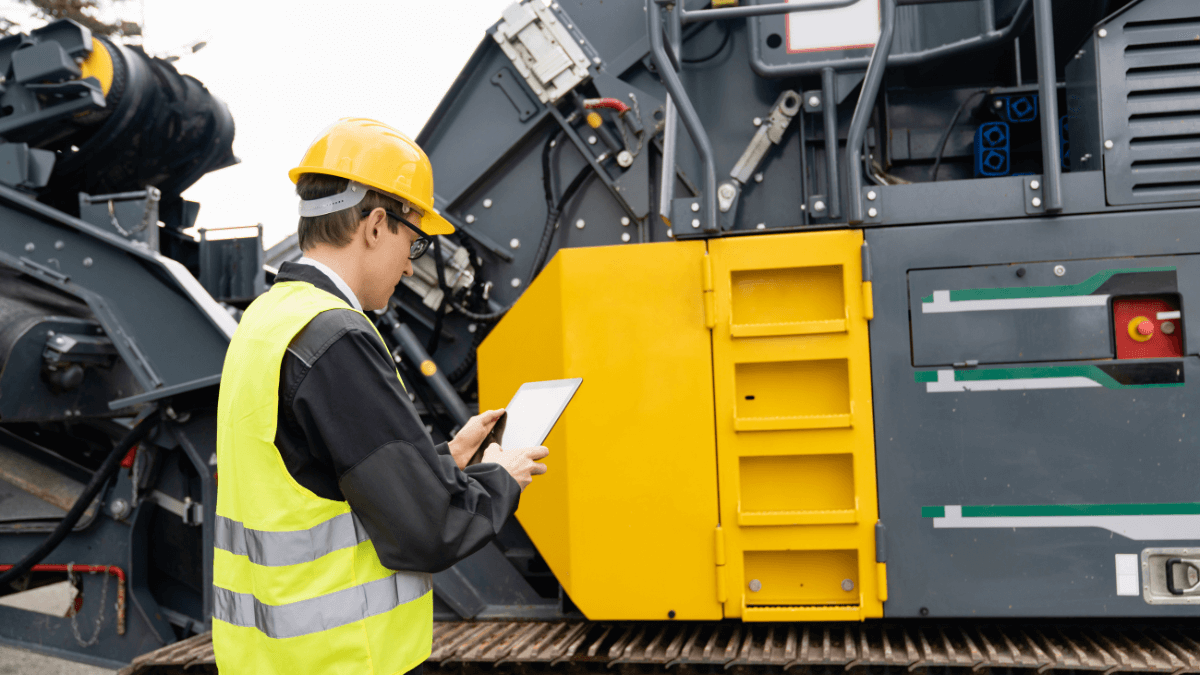Key Takeaways:
- The high cost of excavators and varying project needs make renting them a practical solution for many businesses.
- Renting compactors helps companies avoid underutilization costs.
- With cranes being highly specialized and expensive, over 60% of construction businesses opt for rentals.
Want to get the right equipment without blowing your budget?
More and more construction businesses are turning to equipment rentals, choosing flexibility and cost savings over ownership to meet their project needs.
In this guide, we’ll break down the eight most popular equipment rentals and explore why they’re in such high demand.
Whether you’re a construction manager or a business owner, the insights we’re about to share can help you make smarter rental decisions.
Let’s dive in!
In this article...
Excavators
Excavators are essential heavy-duty earthmoving equipment for digging foundations, trenching, demolishing structures, and more.
They come in various sizes, from more compact models to true powerhouses, and each of these rental options is very popular among construction companies.
However, a recent report by Equipment Watch shows a notable preference for buying excavators.
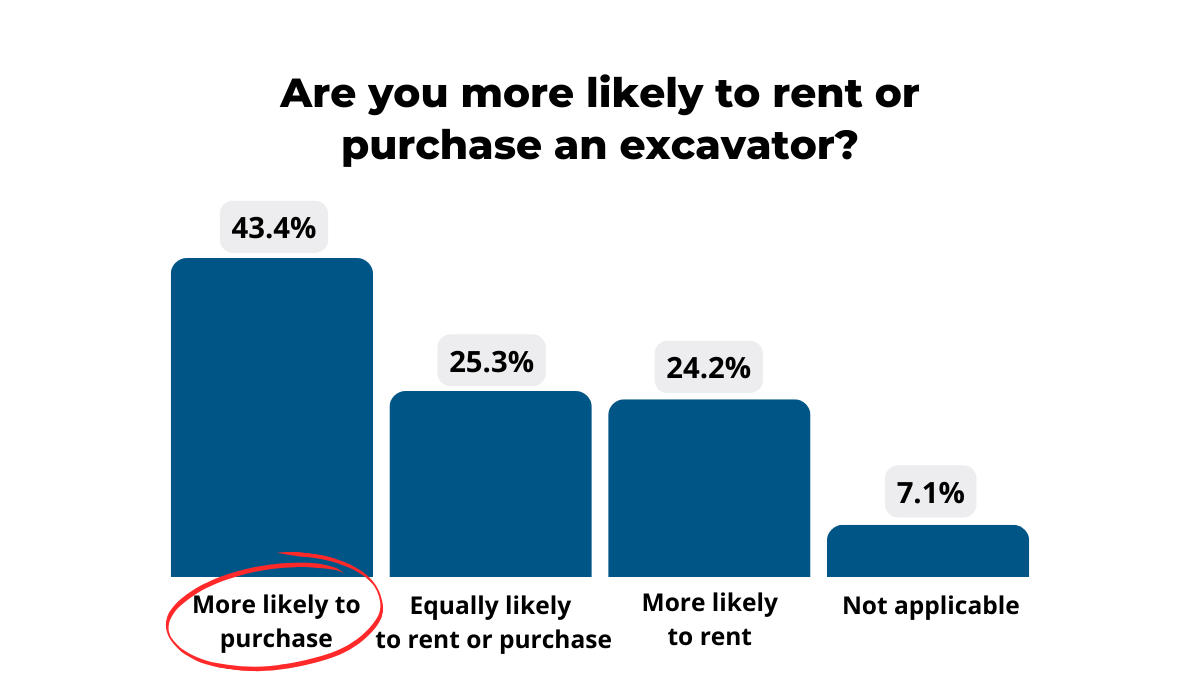
Only 24.2% of respondents were more likely to choose renting, which is significantly less compared to other popular equipment rentals.
If you’re wondering why that is the case, keep in mind that this data needs to be contextualized.
Namely over a third of surveyed construction firms—36.9% of them—reported that excavators account for 11-30% of their equipment fleet, making them the most universally owned type of equipment.
In a nutshell, these machines are the beating part of every fleet, and it is not uncommon to rent excavators in addition to owning them.
This is especially true when you take into account that these are expensive machines and that your project needs don’t always match your existing fleet.
In the words of Robert Godsell, Caterpillar’s Marketing Consultant, buying an excavator is a big decision regardless of business size, but renting helps even things out.
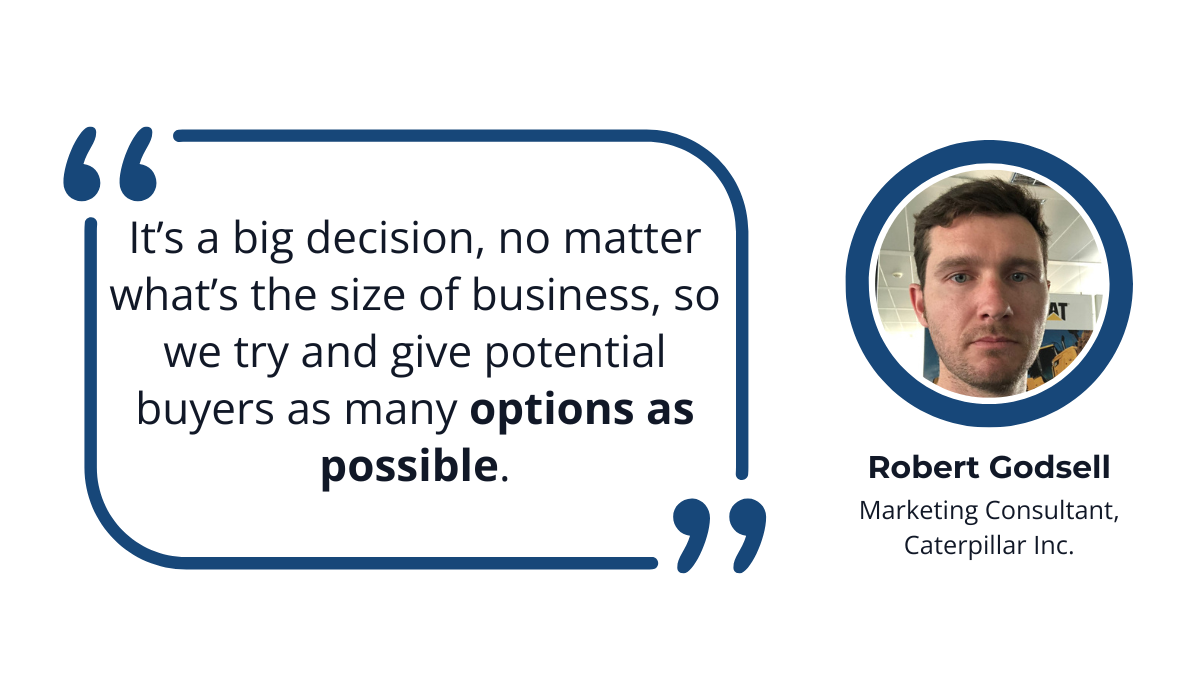
Renting an excavator leaves you with a bit of financial wiggle room, and you’re more likely to pinpoint the exact kind of machine you need.
And, if the excavator rental market’s projected growth is anything to go by, construction businesses won’t be dropping this equipment any time soon—and neither should you!
Backhoes
The backhoe is another versatile piece whose dual functionality makes it a valuable asset for a wide range of construction tasks.
So, how popular are backhoes?
To put things into perspective, the Precedence Research showed that earthmoving machinery dominated the equipment rental market in 2023, taking up 56% of the share.
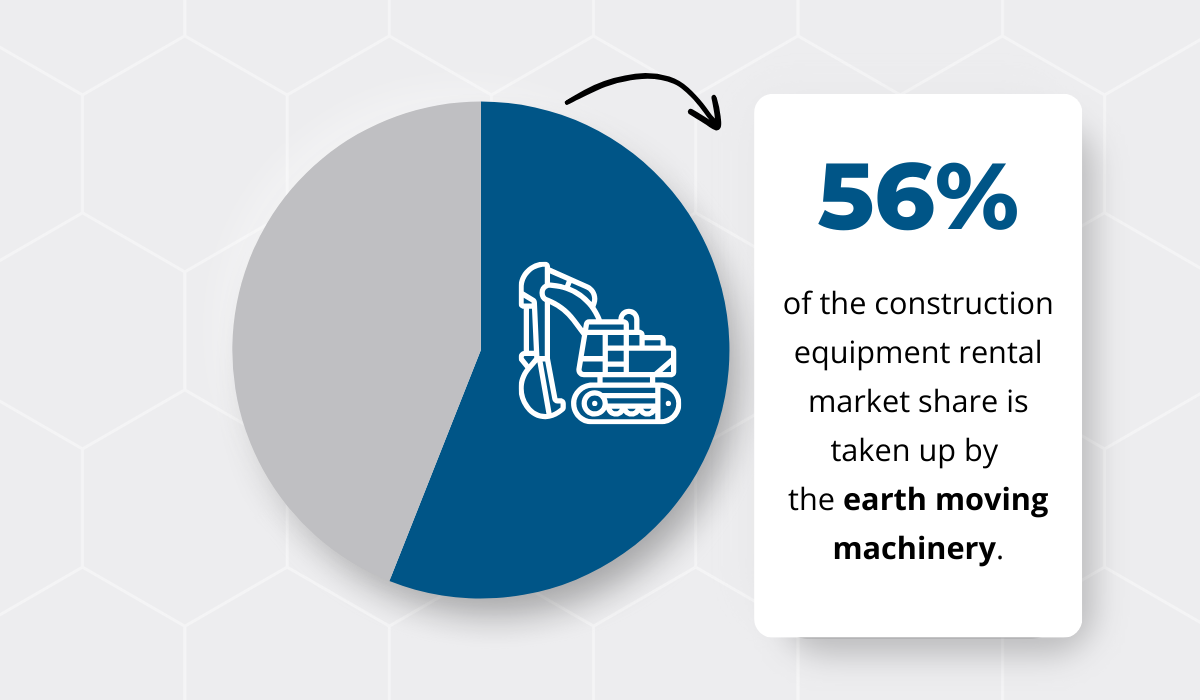
Of course, backhoes aren’t the only equipment type in this category, but here’s why they’re so popular.
Compared to excavators, backhoes are compact and compatible with a whole range of attachments.
While the standard backhoe bucket and loader are essential for digging and material handling, you can easily fit augers and hydraulic hammers.
These attachments would enable a skilled backhoe operator to drill postholes, break up concrete, and complete other construction, landscaping, or demolition tasks.
Just think about it: one piece of equipment can tackle all that!
Operating a backhoe takes skill and experience, which is why many rental companies sweeten the deal by offering the services of trained operators as a part of the package.
For example, Rent1’s hourly rates include both the price of the equipment and the operator.
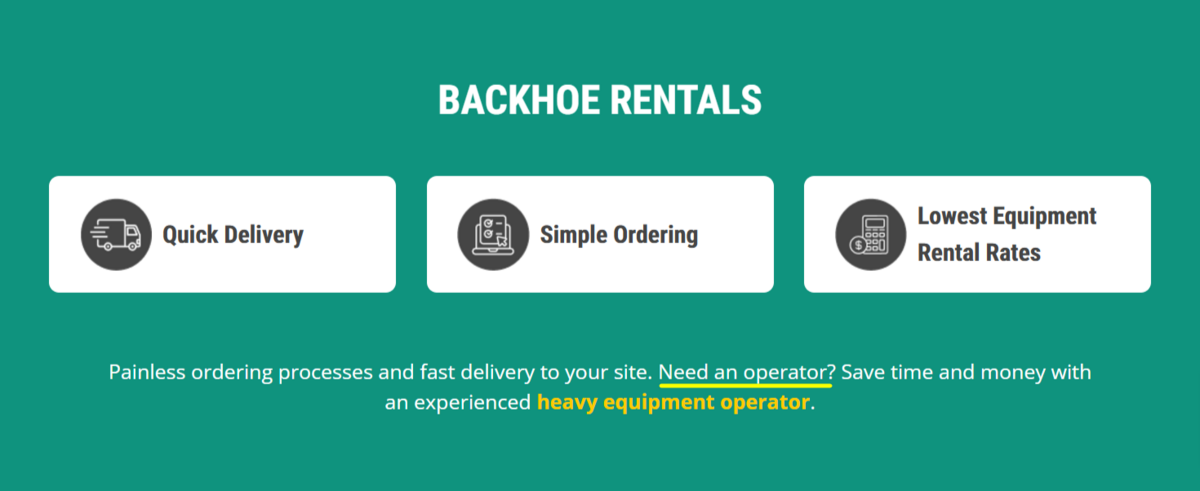
The promise of greater efficiency and safety, as well as cost savings, is enough for many businesses.
But even without additional offers, the backhoe holds the spot among the most popular equipment rentals for a reason, so be sure to consider it!
Bulldozers
Bulldozers are another multifunctional heavy-duty machine used for land clearing, road construction, site preparation, and other tasks.
Like excavators, however, owning a dozer requires a high upfront investment, even without the ongoing costs of ownership.
Research shows that financial considerations have a significant impact on rental trends and choices, ranking as the second most common reason for renting.
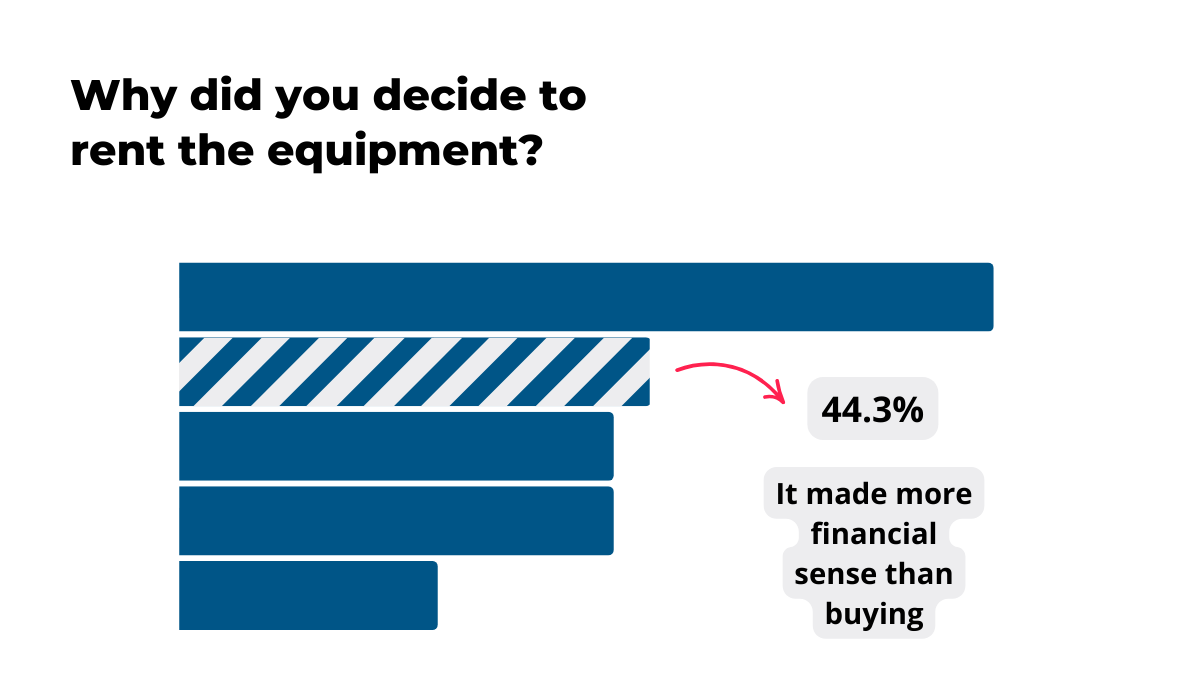
Think about it: renting a dozer for a few weeks means you get to keep a positive cash flow while someone else handles core maintenance tasks.
Renting also enables construction businesses to leverage advanced technology.
For example, John Deere’s 2023 generation of small dozers features EZ-grade technology for improved control and precision.
Here’s what Matt Goedert, Customer Success Manager at John Deere, says about the benefits.
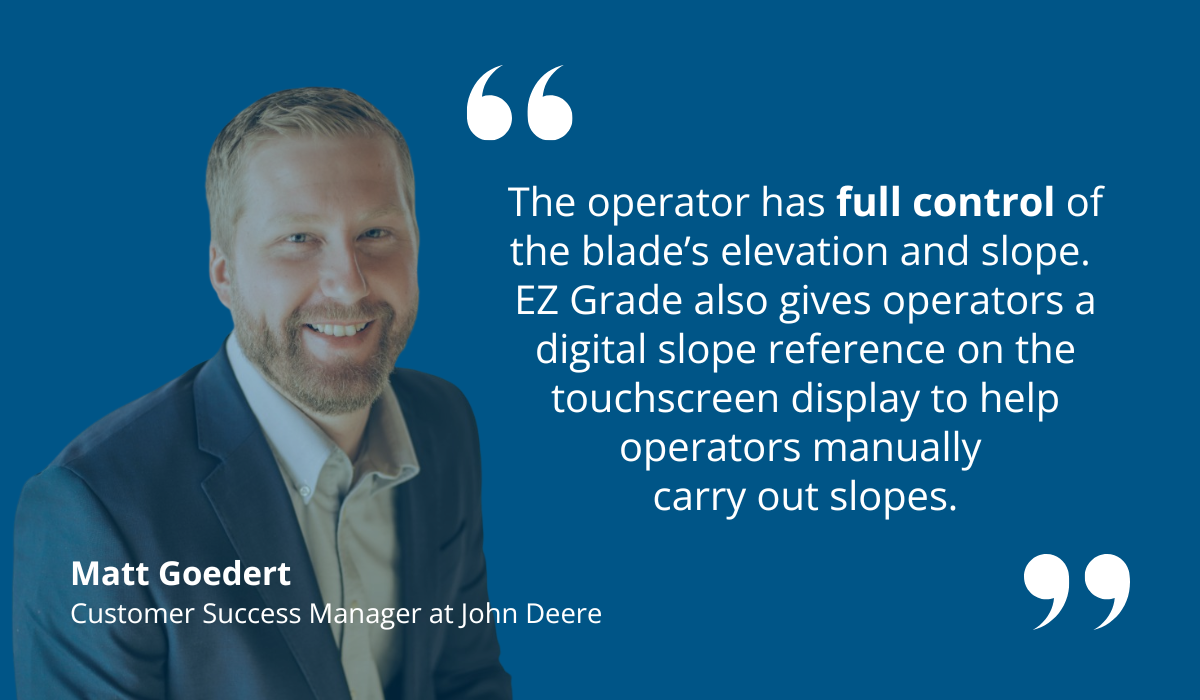
Bulldozers are already capable of cutting, filling, and grading in one operation, but boosting precision in this way means more productivity and less rework in projects of all sizes.
To sum up, renting is often the quickest, most cost-effective option for construction businesses, and dozers are just one example of this.
Loaders
Loaders are another type of equipment that can easily replace different machinery if you’re on a tight budget.
They can handle digging, grading, loading, and carrying materials, but there are a couple of factors you need to consider first.
Your project requirements dictate which wheel loader size and bucket capacity you’ll need.
For instance, getting too big of a loader would mean reducing your mobility across the site or wasting energy.
Luckily, this is where renting comes in.
Steve Gola, a salesman at Stephenson Equipment Inc., advises all businesses to opt for renting when the volume of work and deadlines call for it.
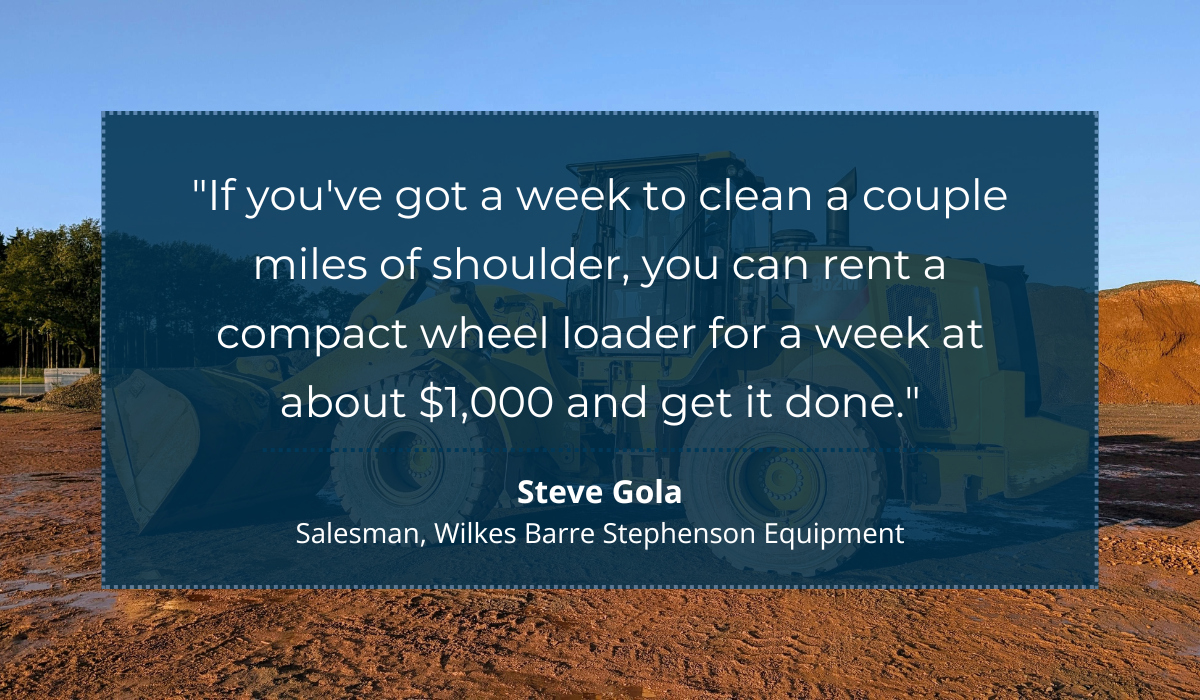
Gola goes on to elaborate that anything beyond that means you’ll need a more powerful machine or that you should at least consider ownership.
Nevertheless, renting allows you to align your equipment choices with project specifics and achieve maximum efficiency.
And getting an efficiency boost isn’t the only advantage.
Data collected by the European Rental Association (ERA) and the Climate Neutral Group (CNG) shows that relying on rental fleets has beneficial effects on the environment, too.
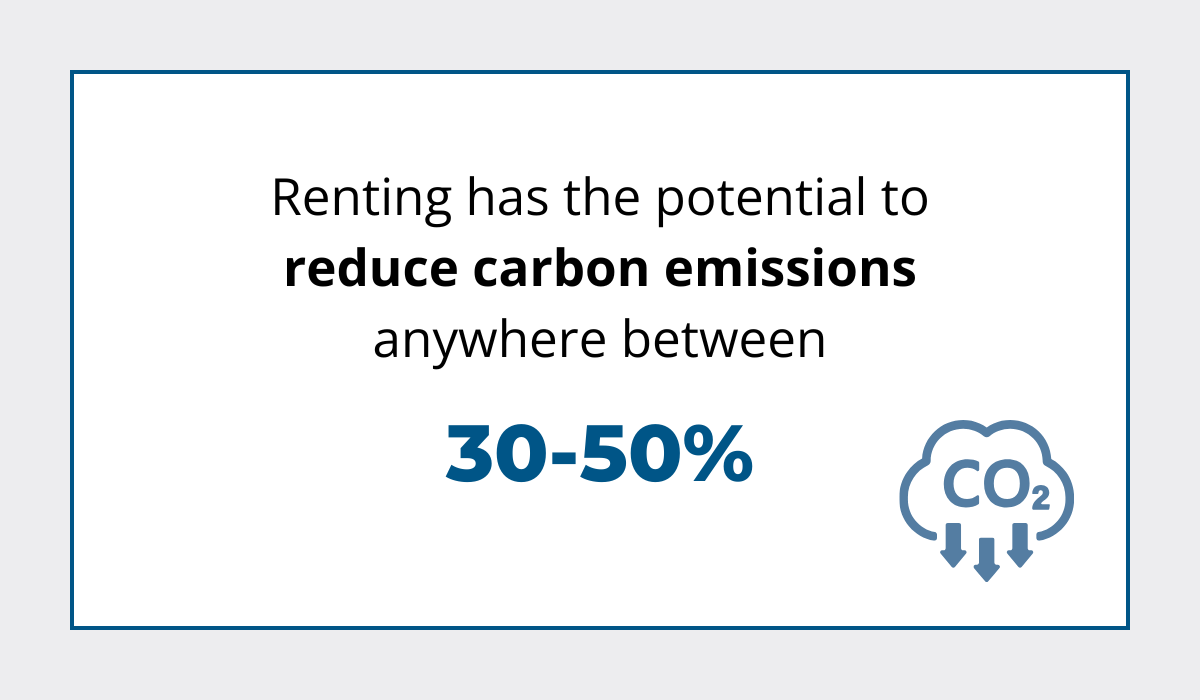
Mitigating the effects of carbon emissions and reducing your carbon footprint can help you meet new, more strict emissions regulations.
Renting loaders makes even short-term use more efficient and sustainable, and who wouldn’t be interested in that?
The bottom line is that you should consider renting a wheel loader next time you need one—you’ll see how quickly the benefits stack up!
Forklifts
Forklifts are a type of lifting equipment that’s used in warehouse settings, but also on construction sites.
They make it easy to (un)load and transport construction materials across the site, improving on-site logistics and overall efficiency.
Quipli’s research shows forklifts were the third most in-demand construction rental in 2023, recording over 19,000 Google searches.
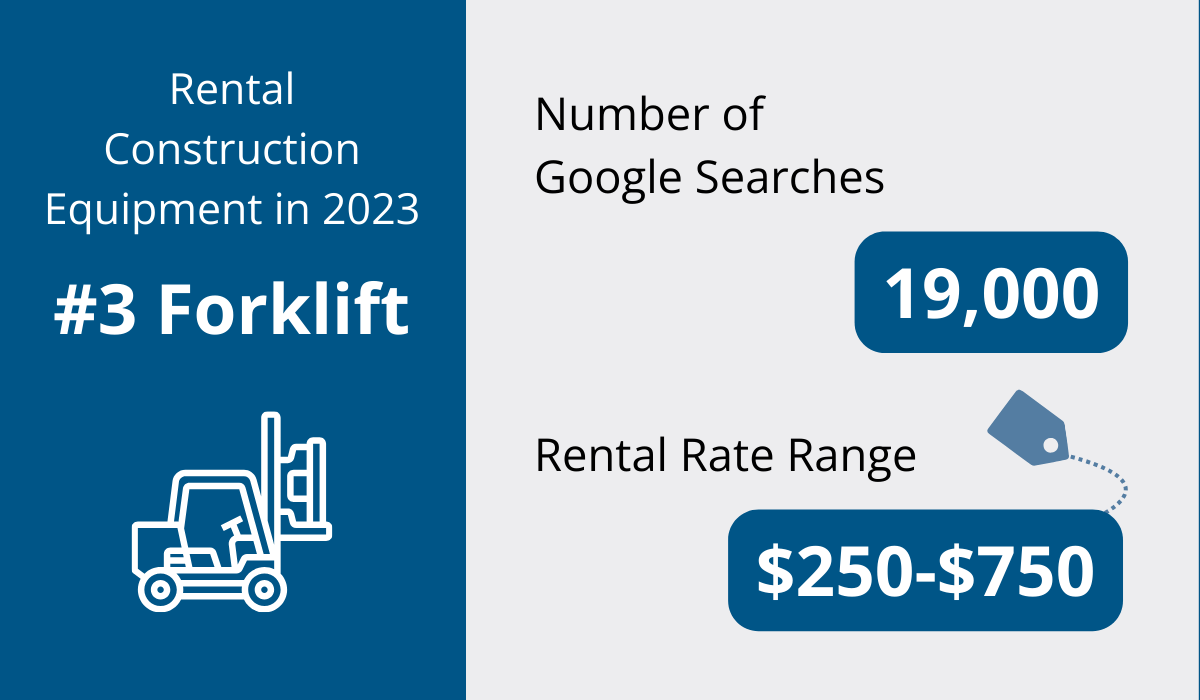
A forklift is an integral part of every construction fleet, so why is it rented so often?
The answer is, once again, versatility.
Renting enables access to different types of forklifts best suited for different construction site tasks, including:
| Rough terrain forklift | Easily navigates off-road surfaces thanks to durable tires or tracks. |
| Telehandler | Comes equipped with an extendable boom for maximum lifting height. |
| Straight mast forklift | More heavy-duty and perfect for outdoor lifting tasks. |
| Industrial forklift | Compact model suitable for storage or loading areas. |
| Side loader forklift | Transports long loads like pipes or beams. |
This way, construction businesses can pick the exact kind of forklift they need for the project, ensuring it has the right load capacity and lifting height, and that it can manage the terrain and space constraints.
The top reason why companies choose to rent equipment in general is how convenient it is for short-term or infrequent use.
And forklifts are a prime example of this.
Long story short, if you need a piece of equipment for temporary handling of different cargo and materials, renting a forklift is the most cost-effective choice.
Cranes
Next, we have cranes.
They are also used for lifting and moving heavy materials, but at a much bigger scale than forklifts.
They also have a much higher price tag attached to them, which is why they’re so frequently rented rather than bought outright.
In fact, the Equipment Watch research we mentioned earlier shows that over 60% of respondents prefer to rent cranes, which puts them at the top of the most commonly rented equipment.
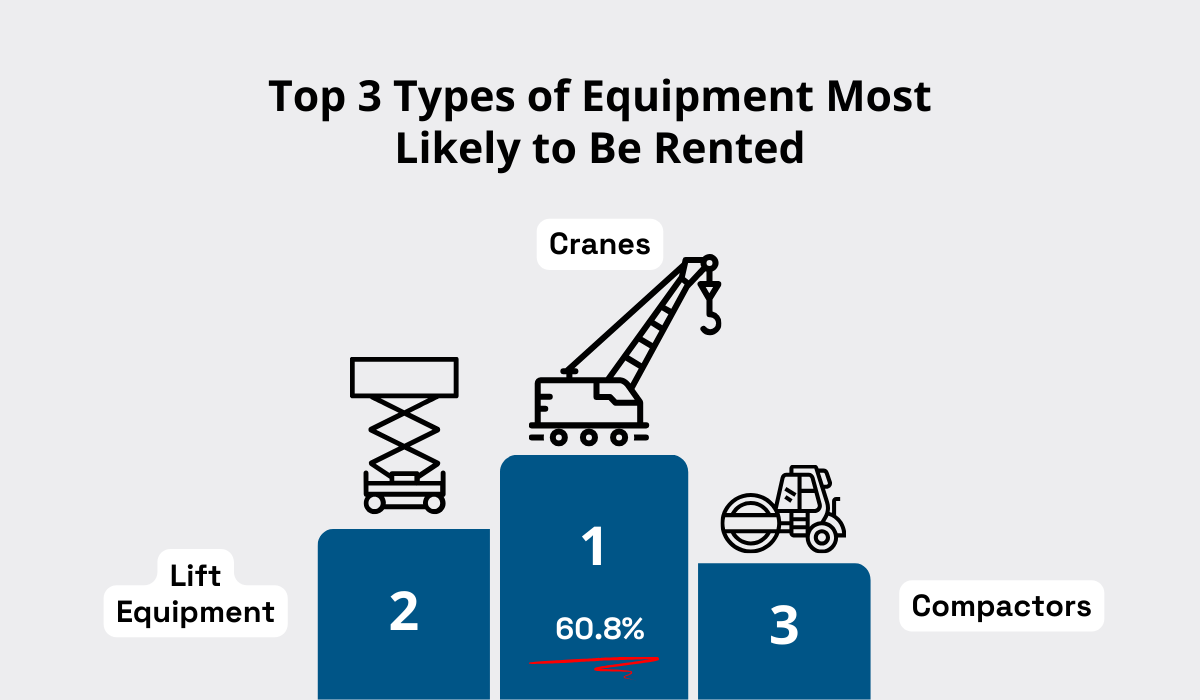
However, don’t think it’s just about the hefty initial price.
Cranes are expensive, but they’re also highly specialized depending on the type and primary construction use.
In other words, renting allows companies to acquire cranes with the exact specifications they need for the ongoing project.
For instance, wheeled cranes are typically used on stable, paved surfaces.
Cranes with crawler tracks are, however, a much better fit for difficult terrain.
If you have a one-off project in a more challenging setting, the odds are that you don’t own the crawler crane you need.
And even if you do, there’s a smaller chance still that its crane boom type, which dictates lift capacity and ease of deployment, fits the job to a tee.
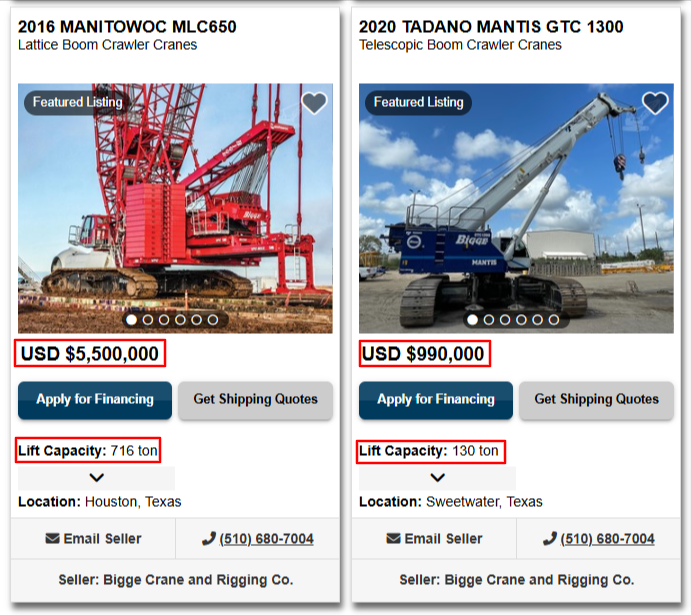
In these and similar cases, renting is a practical solution that enables you to meet project requirements while avoiding the high costs of ownership.
It’s clear that crane rentals won’t be going anywhere for a long time, so make sure to make full use of them.
Compactors
Compactors are used in site preparation to compress the ground and fill in any air pockets, allowing businesses to roll out heavier machines.
Since compactors are only used during specific project phases, opting for equipment rentals means avoiding the costs of underutilized equipment and long-term storage.
And while equipment utilization can be hard to measure, the rising storage costs are increasingly more noticeable.
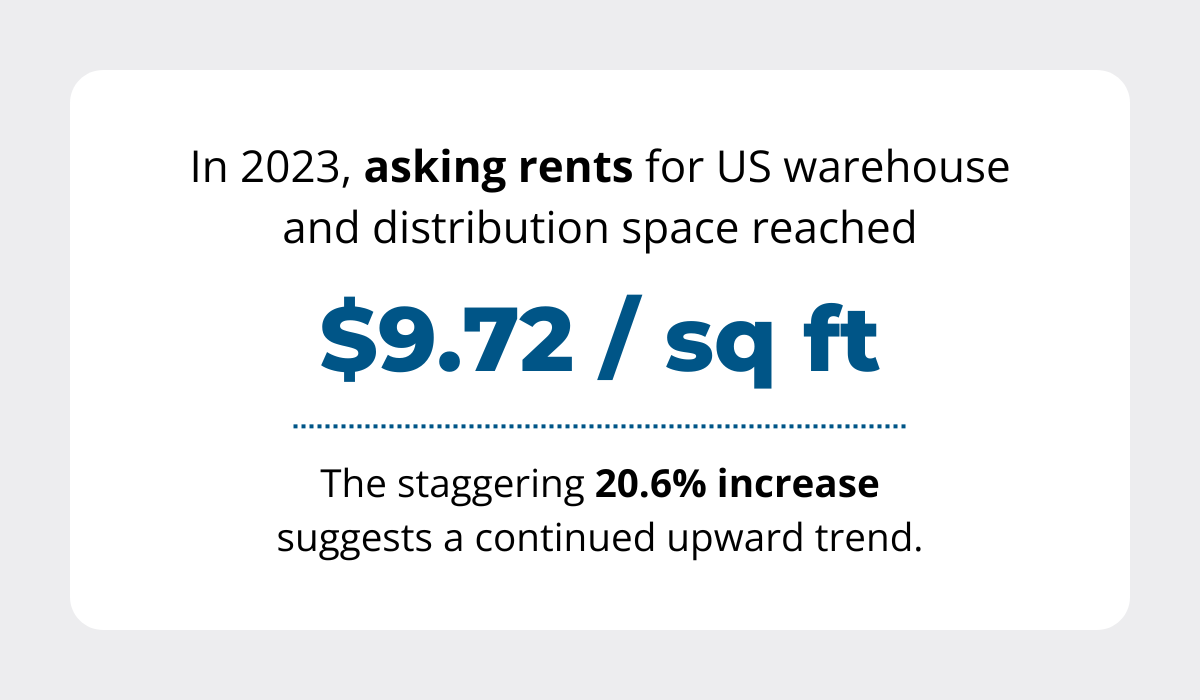
Yes, renting ensures you keep compactors on-site only for as long as you need them—but there is another compelling reason to opt for rentals.
Similarly to some other examples we listed, renting provides flexibility and easy access to specialized types of compactors in line with your key requirements.
Much of it boils down to the type of soil you’ll be working with.
Lighter soil typically requires compactors that can be used in confined spaces, such as vibrating plate compactors and rammers.
On the other hand, heavy soil gives you more options, but you still need to pay attention to whether the soil is fine or coarse.
And don’t forget that external conditions and safety also play a major part in your choice of a compactor.
Brad Belvin, Manager of Sales and Marketing for compactor manufacturer SAKAI America Inc., explains that there is a surging demand for enclosed cabs.
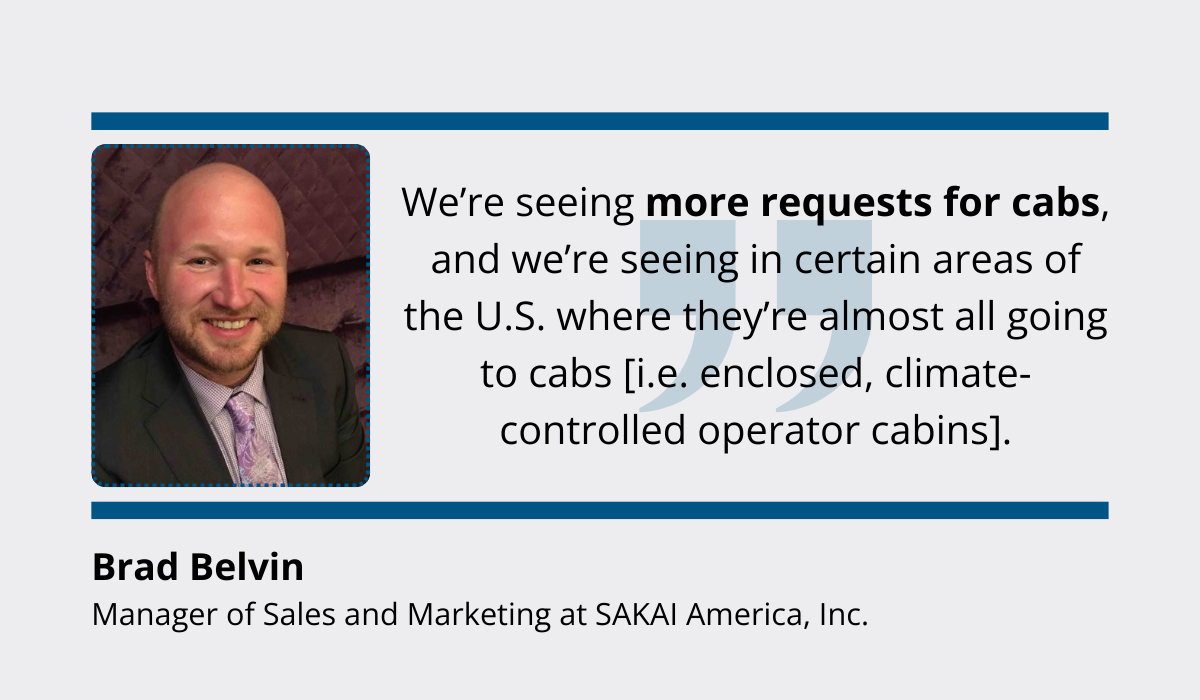
Operators prefer cabins because they offer protection from external hazards and a more climate-controlled environment, which ensures comfort and prevents fatigue.
In conclusion, exploring compactor rental options will enable you to meet project requirements, but also enhance the safety of your operators, so be sure to do so.
Drilling Equipment
Last but not least, we have drilling equipment for construction.
Drilling equipment is an umbrella term for drills and drilling rigs used for foundation work, utility installations, or larger structural modifications.
As such, this type of equipment is generally owned by specialty contractors.
Meanwhile, over half of the aforementioned Equipment Watch survey respondents own no drilling equipment.
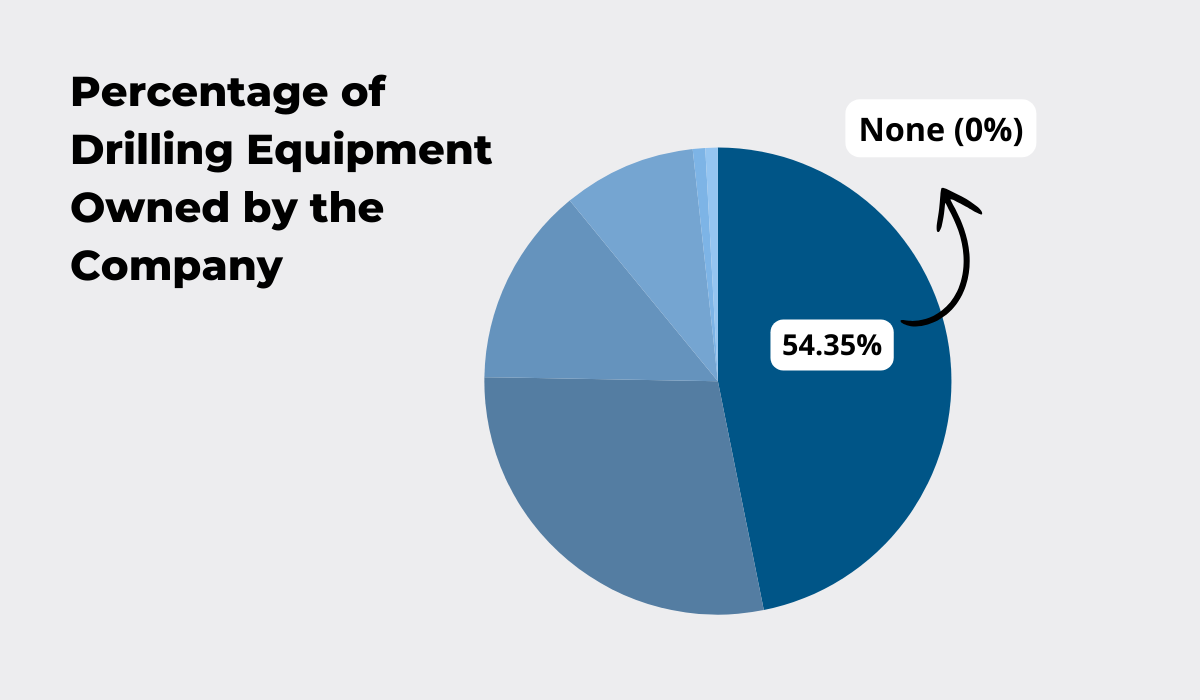
Such a high percentage may seem surprising at first, but it makes perfect sense given that drilling equipment comes in many shapes, sizes, and functionalities.
Although the basic operating principle is the same across different drill types—the mechanism aims to create boreholes on the surface—your choice of a drilling rig depends on:
- the depth and diameter of the boreholes, and
- the site’s accessibility and energy resources.
For example, an Auger Drill Rig would be enough for digging foundations on residential projects, but skyscrapers require a heavy-duty Kelly Bar Rig.
When it comes to accessibility, hydraulic rigs are perfect in settings with limited energy resources, unlike the more demanding pneumatic or electric rigs.
And even if all these factors are taken into account, there’s still a chance you’ll encounter unexpected difficulties on-site.
One famous example is the Panama Canal expansion project, which incurred significant cost overruns, in part due to complex geological conditions.
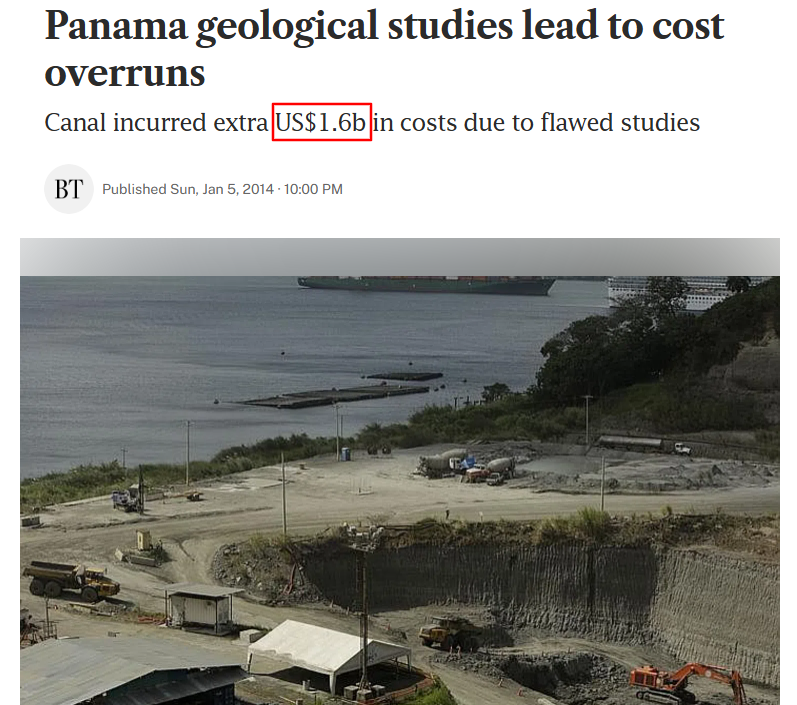
When faced with unexpected challenges such as harder soil, water ingress, or unstable geological formations, renting drilling equipment gives you much-needed flexibility.
And, if the equipment you previously rented isn’t making progress, you can quickly adapt to the evolving conditions on the field by choosing a different type of rig that can handle them more efficiently.
Ultimately, renting drilling equipment helps you keep your project’s timelines and costs in check, which makes it a reliable and popular rental choice.
Conclusion
Choosing to rent equipment can be a game-changer for your project.
Sometimes, it’s the machine’s versatility or the simple convenience of renting short-term.
In other cases, it’s all about getting your hands on the latest technology without the hefty investment.
The key is understanding both your options and the benefits they offer—and that’s exactly what we set out to explore in this article.
As you consider your next project, explore your local rental services and keep these popular choices in mind.
Here’s to your next successful project!




